Good indoor air quality plays a critical role in healing and wellness at hospitals and other healthcare facilities – lives may depend on it.
Hospitals are meant to be places of healing and wellness. They must maintain a high level of cleanliness to promote healing and good health, especially for patients in critical care units.
Yet studies have shown that the air quality inside many hospitals is poor. Studies also show that cleaner indoor air aids patient recovery and decreases physiological stress. As a result, hospital administrators might need to implement an air filtration strategy to combat the problem.
Hospitals, as well as nursing homes, dental offices and fertility clinics, must be a bastion of cleanliness and health. Critical equipment must also be protected from harmful substances that can interfere with their operation. Energy savings and flexible air filtration systems for operating theatres are also a high priority these days.
These goals are only achievable with a filtration system that is effective at removing even the smallest pollutants from the air. Air filtration from Camfil can hold the key to meeting these critical challenges.
Many hospitals also provide specialisation in order to offer better patient care. This applies for infectious disease units, oncology units or haematology units. In these units, highly skilled staff must deal with highly sensitive patients who require either extreme patient protection or specific nurse and doctor protection.
To address the issue and find the right air filtration solutions, it’s important to understand the major causes of poor air quality inside healthcare facilities.
Sick patients at healthcare facilities can unfortunately contribute to air quality that is less than ideal. Coughs can contaminate the air and surfaces within a hospital room or lab. Open wounds or infections can transfer viruses and bacteria from patients’ bodies onto surfaces such as bedpans, mugs, plates, silverware, bedding and other materials. Once these materials are disturbed, those contaminants become airborne.
Many public hospitals in large urban areas were constructed many years ago, when innovations in ducts and vents were not as highly advanced as they are today. As a result, the air drawn into the hospital may not be properly filtered through the outdated ductwork. So, common pollutants such as dust mites, dirt, pollen and airborne bacteria can more readily circulate through the vents.
Moisture presents a particular problem in ductwork. It often leads to problems such as mould and spores, not to mention the risk of salmonella and nosocomial infections, which can grow into a major health issue beyond compromised air quality alone.
Much of the air that circulates through a hospital is drawn in from the outside. The indoor air quality in many health facilities therefore largely depends on the outside air quality. Dangerous vehicle exhaust fumes and odours can pose a threat by entering the building via the HVAC system.
For more than 50 years, Camfil has been an industry leader in the design and manufacturing of air filtration systems that are innovative, functional and health affirming. Camfil places a high value on the efficiency of its products, and through rigid testing, has developed solutions to the most complex clean-air problems facing the world.
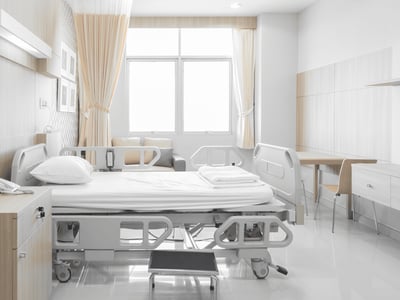
Air quality relates directly to patient recovery. The inhalation of fine and ultra-fine particles activates the body’s immune system, delaying or preventing healing and recovery. Particles can also act as a transport for pathogens, leading to hospital-acquired infections and the need for further medical treatment. Camfil's patented air purifiers complement existing ventilation systems to provide a healthier environment with less dust and fewer harmful particles.
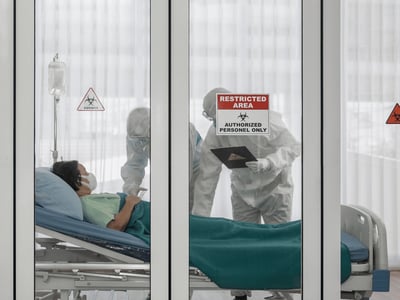
Proper ventilation is critical to high-risk patients or those suffering from transferable pathogens (such as bacterial or viral infections). Improper ventilation increases the hazard to these and other patients, hospital staff and visitors; this is especially true when air is recirculated. An optimized array of filters, including certified and tested HEPAs, help reduce infection transfer and enhance overall patient and staff safety.
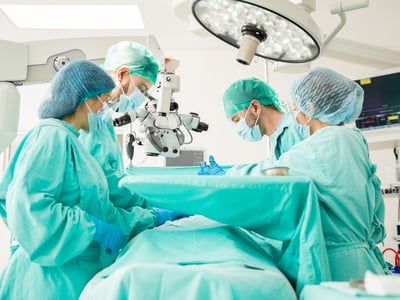
Operating rooms are the most demanding areas in a hospital environment. Ultra-clean operating rooms decrease the risk of infection, and the ventilation system plays an important role in ensuring patient safety during surgery.

Dentists, patients and staff need protection from airborne bacteria and viruses, mercury and disinfectants during routine dental work. Camfil filters help to capture these potentially harmful particles and gaseous chemicals.
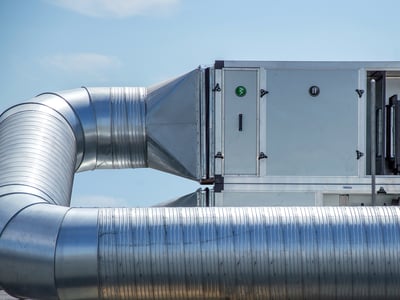
Protect people, processes, products and equipment while keeping maintenance and energy costs low by keeping air handling units unclogged.

Protect pharmacists and nurses when processing drugs, solvents and chemicals as well as your high-tech machinery with quality air filtration solutions.
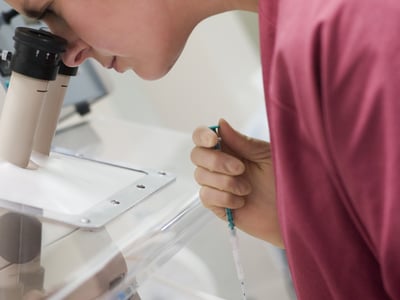
Nowhere are process cleanliness and air quality more critical than in in-vitro fertilisation labs, where studies show a direct relationship between clean air and procedural success.
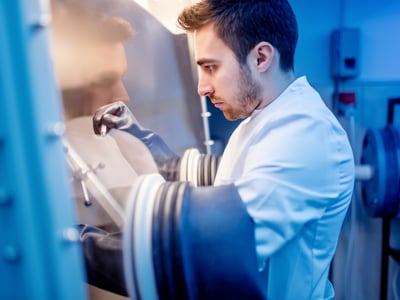
Protect researchers from biological and chemical risk during their daily lab work, and maintain the safety of people and the enviroment by containing risk inside your facility.

Operating rooms are the most demanding areas in a hospital environment. Ensure patient safety during critical surgical procedures and provide a safer hospital by minimising nosocomial contamination with proper air filtration.

Rigorous testing of a product during its development phase is ultimately about being able to guarantee a certain level of performance. This is, of course, also true for high quality air filters like Camfil’s. And the way these products are tested has always been changing and evolving.
Life science and healthcare Innovation technology and research Air quality Electronics and optics Manufacturing and machinery
Why is ventilation so important, how does it work and what factors ensure a healthy and productive indoor air environment in our buildings?
Sustainability Air quality Commercial and public buildingsWithout HEPA filters, we would not be able to manufacture computers, medicine and many other products that are essential in today’s world. But what is the history of these High Efficiency Particulate Air filters and how and where are they used?
A recent United Nations study shows that many countries lack the necessary laws and regulations to combat air pollution. There are also significant differences in how countries monitor and measure air quality and present their data.
How do you best protect yourself from air pollution in a city environment? Is it safe to open a window to let the breeze in to cool your premises on a warm day? What about pollutants already present in your indoor air?
The air in our buildings is often 2-5 times more polluted, and in some cases, even a hundred times more polluted than the air outside. So, where do the pollutants in the indoor air come from and how do we mitigate their impact?
The City family of air purifiers is an excellent choice when you are looking for a solution that will deliver consistent performance and a high level of efficiency throughout its lifetime. A premium way of supplementing the air filters in your ventilation system to achieve clean and healthy indoor air.
Not all people who purchase our products are experts in air filtration and they shouldn’t have to be either. The purpose of Camfil City is to give everyone a chance to learn the basics of what our clean air solutions can do for them.
Indoors, we are exposed to a host of particles and contaminants that directly impact our health. If the supply air is not filtered efficiently, you risk adding significant numbers of harmful particles to the indoor air.
When hospitals choose filter solutions for ventilation, their focus should be efficiency and reliability. Often cheaper solutions do not offer high-efficiency removal, energy savings, robustness and long terms reliability.
CamCarb VG modules with loose-fill media are robust solutions suited for make-up air (outdoor air) and recirculation air systems. The primary use is the control of acidic gases that are responsible for the corrosion of electronics and electrical equipment in heavy process industries such as pulp and paper mills, petrochemical refineries, mining and metal refining operations, and wastewater treatment plants.
Providing the appropriate environment for fertilisation is one of the most important steps in IVF. Airborne pollutants are critical in IVF facilities where air quality in laboratories and clinical procedure rooms can have enormous effects on embryo quality, embryo survival and the clinical outcome of IVF treatment.
Filtration is a physical, biological or chemical operation that separates solid matter – and sometimes fluids – from a mixture with a filter medium that has a complex structure through which only certain elements of the air (or fluid) can pass.
the technical service department at Deventer hospital received complaints several times a year about unwanted diesel odours in different parts of the hospital building. Headaches was one the key problem among the laboratory staff. In operating rooms, the problem was significant because the air is circulated directly from the exhaust vent onto the operating table.
Reduce fallow time between patients with our dental HEPA air purifiers. Removes contaminants created during dental procedures
In a scientific debate, WHO has acknowledged that in the case of COVID-19, airborne transmission could not be ruled out in crowded, closed or poorly ventilated settings. Scientists across the world are looking for more evidence as it may affect many guidelines in the crowded indoor environment.
Combating the virus in the air. Maintaining a good level of hygiene and covering the mouth with a mask are good ways to stay protected but is this enough? Maintaining a hygienic and sanitary environment along with protection from those infected are vital as the virus thrives in contaminated conditions.
St James Hospital Prevents Aspergillus. Healthcare facilities must maintain the highest levels of cleanliness to promote health and healing. Camfil provides air cleaners for these environments. St. James Hospitaal in Dublin used Camfil for Aspergillus prevention.
As a place of healing and recovery, hospital air quality is even more important than the air quality at commercial offices and shopping malls. The purpose of a hospital is to return people to good health, and an essential aspect of this process is ensuring that airborne pollutants do not make existing conditions worse.
Starting the In Vitro Fertilisation (IVF) process can be an exciting and nerve-wracking experience for anyone needing help in conceiving a child.
Some processes are more sensitive than others. If you work in the food and beverage or life science industries, you know how tough the demands on clean air are. To be sure you have the right filter, look for the ProSafe symbol.